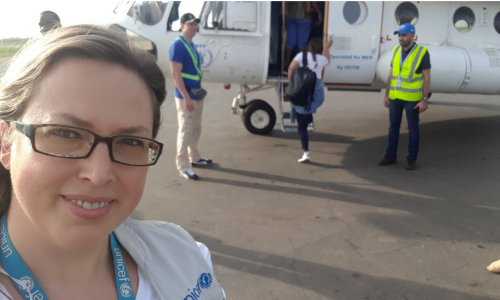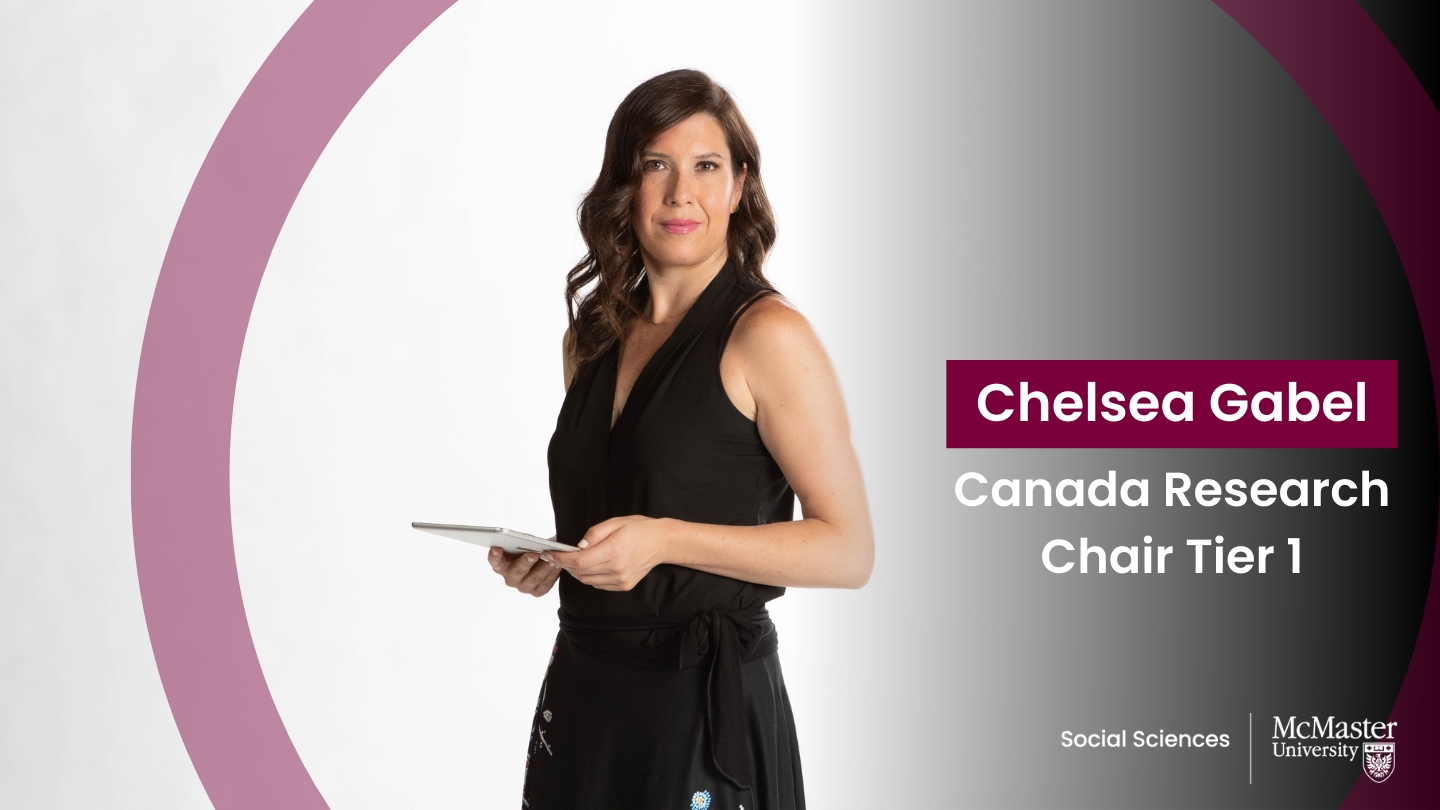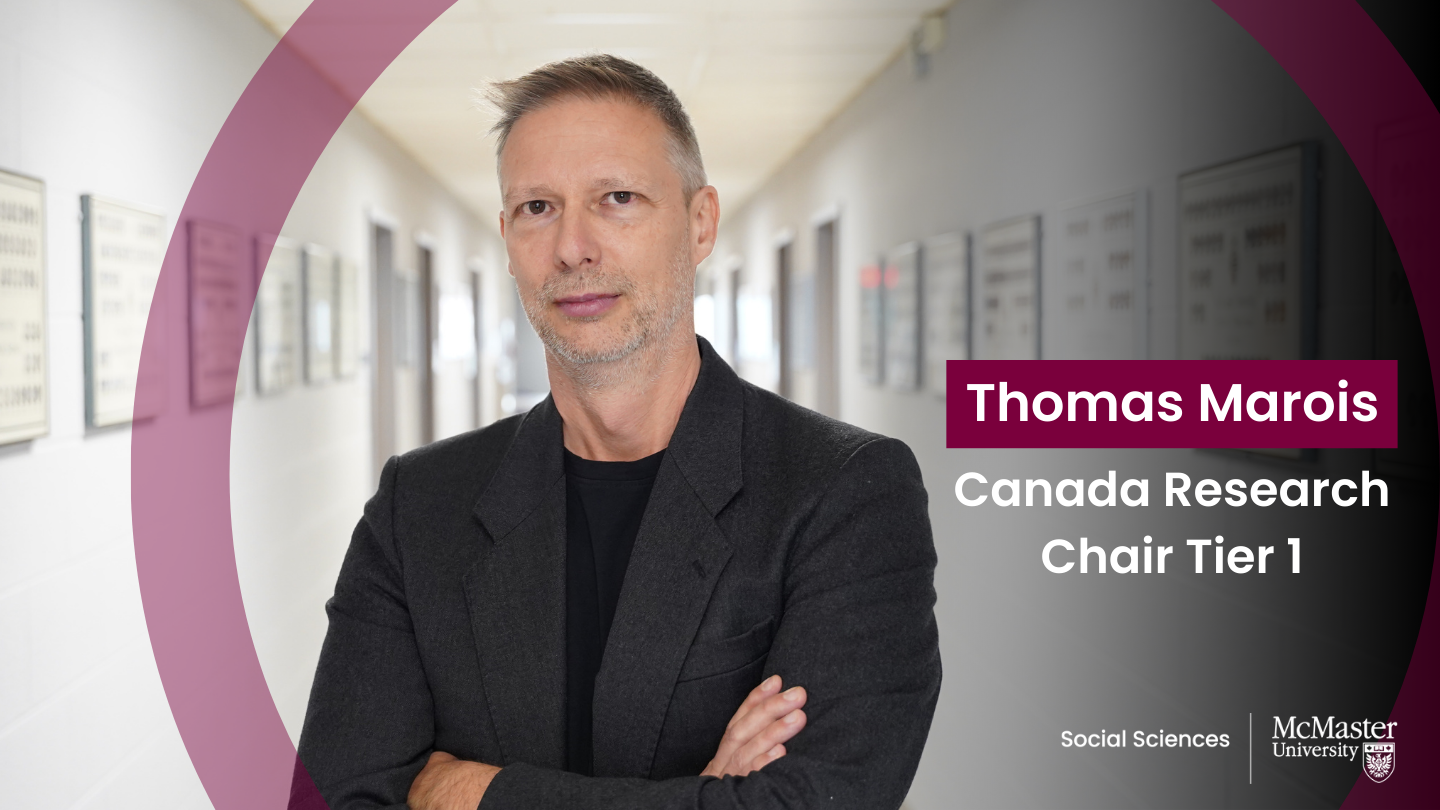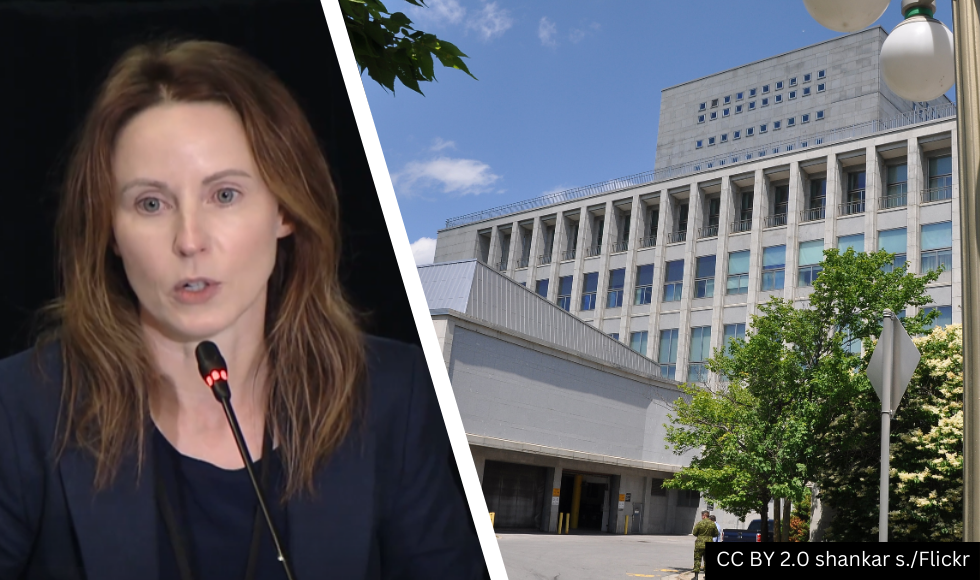Religious Studies graduate Dr. Émilie Roy tells us how her PhD led her to Burkina Faso

When Dr. Émilie Roy ’12 was studying for her PhD in Religious Studies at McMaster, she had no idea she’d be working development sector in crisis-affected countries like Burkina Faso, where she is now UNICEF’s Chief of Education.
“I thought I was going to be an academic!” said Roy. “That was the goal. But, granted, I was never quite the bookworm because field work was really important to me, and I always wanted to be close to the field.”
However, her PhD at McMaster opened the doors for her to work in Africa, first in the field in Mali, then at a university in Morocco, through Senegal and Mali again, before her current role in Burkina Faso.
Her decision to study at McMaster came down to a few significant reasons. Firstly, it was a good opportunity to study at an English-language university, having previously studied at Francophone institutions. Secondly, the school let Roy study a research topic – Islam in West Africa– that was quite a novelty at the time. And thirdly, because Dr. Celia Elaine Rothenberg was willing to take a chance on Roy.
“The fact that the school was open minded and that Doctor Rothenberg in particular was so willing to take me on as a student gave me an enormous chance,” said Roy.
McMaster also allowed Roy to do field research for two years, in Bamako, Mali. There, Roy worked in local Islamic schools, trying to understand how pupils and teachers relate to the state and how they perceived themselves as citizens of that secular state.
Roy’s time at McMaster was supported by generous donors who contribute to scholarships and bursaries. Among other things, they allowed her to take Arabic courses, essential to conducting research on contemporary and history documents centred around the study of Islam, as well as to the day-to-day operations of Emilie’s career today.
And that career is certainly an interesting one.
After graduating from McMaster, Roy was recruited as the professor of Islamic Studies at a liberal arts university in Morocco. The program took traditionally trained Moroccan Imams and offered them a masters’ education that was designed to broaden their horizons by introducing them to various discipline in the social scientific study of Islam and other religions.
Those Imans went on to be deployed by the Moroccan government in Moroccan Muslim communities throughout the world, with the idea that they served as a bulwark against extremism because they were trained in a wider academic setting with notions about other religions, anthropology, history, and philosophy, which they don’t usually get in their traditional Islamic training.
“It was something that as a young academic, just out of school, just out of the PhD, getting that job, it was brilliant,” said Roy.
Roy said that her McMaster education helped her land that role simply due to the university’s reputation. “The recruiters knew McMaster. They knew I had a really solid education,” said Roy.
After some research-based consultancy work for UNICEF in West Africa as well as other jobs in the humanitarian/development sector, Roy got a job at UNICEF as their Chief of Education in Burkina Faso, a country where the education system is ‘pretty dire’, according to Roy, in part due to the escalating conflict that started in 2016.
“Before the war got really bad, one out of two children was out of school,” said Roy. “We know that one million children lost access to education due to the war. We can only assume that now probably around 66 per cent of children don’t go to school.”
It’s Roy’s job to support the country’s Ministry of Education in the planning and implementation of the education sector. And right now, everything is geared towards providing education amid the conflict which has displaced over two million people.
That displacement means that students aren’t guaranteed a steady education, and UNICEF is helping the government adapt to the present reality by making sure that teachers are trained in psychosocial support for the children, many of whom now have mental health issues due to the war. It also means ensuring that the children who are in school get a quality education.
Around a quarter of schools have been shut down, often because they teach in French, which isn’t acceptable to the fundamentalist groups in the country, which see the schools as overly Western. That means UNICEF is helping the government to offer alternatives to pupils, either through other schools that are still functioning, or traditional Islamic Quranic schools.
“We’re using all avenues that are open and tolerated because of course we never want to put the children at risk,” said Roy.
And back closer to home, Roy has advice for anyone considering a doctorate.
“A PhD in a topic on which one is passionate is always worth it, it can lead to unexpected opportunities, in and out of academia, that can make a real difference for people,” said Roy. “I get to use my knowledge every day in a very concrete manner to improve the lives of some of the most vulnerable children out there.”
Departmental NewsRelated News
News Listing

Associate Professor Chelsea Gabel named Tier 1 Canada Research Chair
Awards, Departmental News
November 14, 2024

Political Science Professor Thomas Marois named Tier 1 Canada Research Chair
Awards, Departmental News
November 14, 2024

Political Science associate professor Andrea Lawlor testifies at Canadian Commission on Foreign Interference
Departmental News
November 12, 2024
